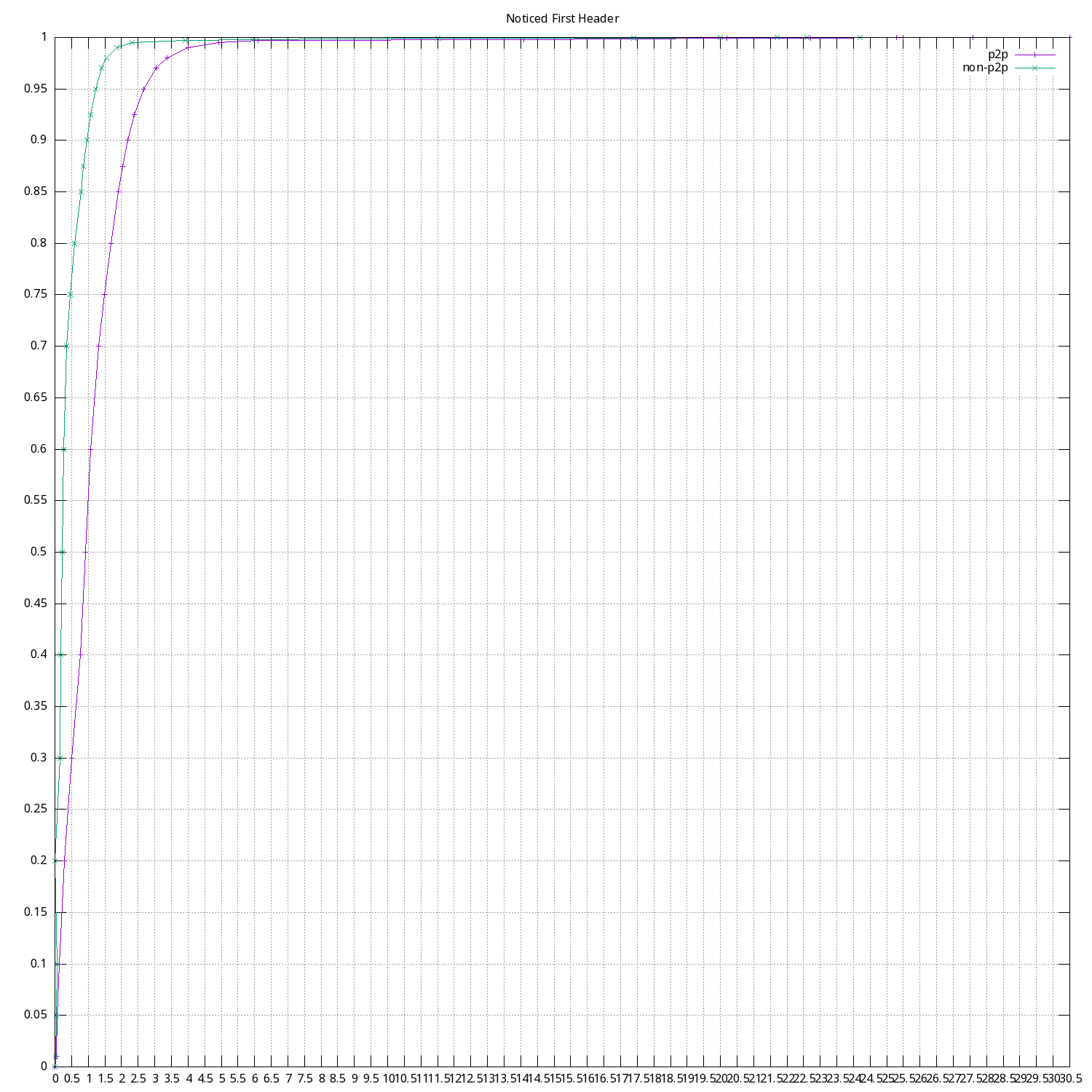High-level summary
In last sprint we got a performance report of P2P performance testing cluster (which consists of 50 nodes). There is a performance regression in the header notification metric. The P2P cluster is constructed with the same topology as the non-p2p reference one this indicates some regression which needs to be further investigated. This poses a risk for releasing P2P.
We also continued to work on peer sharing: pull #4019.
We continued working on dynamic block production which is required for P2P release for BP nodes: pull #3159.
We simplified the P2P topology format: issue #4559, pull #3888.
We added a new trace point for asynchronous demotions of local peers with
Warning severity. This trace is important for SPOs.
Detail description
Performance regression
Below we include a graph which shows the performance regression of the P2P code base vs non P2P.

On the x axis is time in seconds which measures the delay from the start of
the slot to when a header was received. The y axis is the percentile of nodes
that received a header. We are currently investigating possible causes of the
regression.
New P2P topology form
The new topology file format is described in this issue #4559.
Tracing improvements
- We improved a handshake error reporting, pull #4136
- We added
TraceDemoteLocalAsynchronousrendered asDemoteLocalAsynchronousinjsonformat, pull #4127. Such demotions should be investigated by the pool operator. They can indicate a problem in the deployed system, but also they could indicate a remote problem in arranged connections with other SPOs.
Open Source Improvements
We improved documentation of io-sim and typed-protocols for open-source
contributors and/or maintenance tasks: pull #22, pull #45, pull #48.
